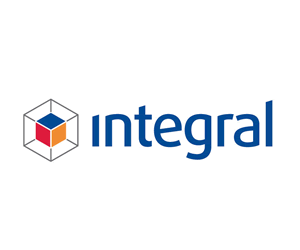Forex Magnates has learned that reputable banking giant, Rabobank, will no longer be supporting Integral Development’s (Integral) aggregation solution under its range of FX prime brokerage (FXPB) services.
Firms operating in the world’s most liquid asset class, foreign exchange derivatives, have faced a number of harsh changes in the operating environment, post 2008 global recession. The over-the-counter (OTC) derivatives market faced numerous challenges by regulators, central bankers and government officials as it was labeled the core culprit behind the demise of two of the world’s notable financial institutions and the most decisive recession since the 1930’s, not forgetting the catchy jargon, ‘too big to fail’.
As a result, financial institutions have been adapting to the new regulations under the Dodd Frank Act, EMIR, and MiFID II as they assess their role in the modern trading environment.
A person close to the matter informed Forex Magnates that both parties decided to seek alternative opportunities. At the same time, Integral lists a range of primary and secondary prime brokers including Bank of America and Sucfin that it works with, according to its website. The move comes on the back of ongoing changes in the slow paced FXPB arena as external factors are directly hitting the firm’s bottom line.
Rabobank and Integral were unavailable to comment.
Prime brokerage units at banks are high-end services that operate with significant overheads. A bank’s FXPB unit is usually a complimentary service to prime brokerage in interest rates, equities and futures & options. FXPB was a niche segment with a handful of providers which came to light from the mid 90’s. However, after the collapse of Lehman’s and AIG, users of PB services opted for a multi-prime product, whereby they reduced the amount of risk they held with one specific provider, which saw a spike in the number of firms offering FXPB services.
An additional factor that has been enhancing the FXPB sector is the mainstream acceptance of FX as a tradable asset class. Non-traditionalists are awakening to the advantages of FX, particularly buy-side firms who have traditionally used FX in silo to hedge currency risk from exposure in international equities. Latest findings from the BIS show that they are diverting their focus to alpha generating strategies.
Credit
The cost of credit has been a driving force behind changes at several banks in the PB arena. In November 2013, Rabobank was downgraded by ratings agency Fitch.
Apart from changes in aggregator technology, the Dutch bank has re-addressed the current terms and conditions it has with PB clients and is making an overall shift to a more stringent offering by tightening its risk and credit policies. The head of a London based Prime of Prime (PoP) firm commented during an interview with Forex Magnates, “banks have to take responsibility for the types of credit-lines they issue. With more and more regulation coming in from across the board e.g Dodd Frank, EMIR and Basel III, banks are questioning the types of relationships they currently have.”
Policy makers in developed markets have been keen to address factors that create situations of unwanted risk when dealing with leveraged products.
With firms such as Rabobank, Credit Suisse and Morgan Stanley reclassifying their role in the PB space, the market has given the up-and-coming PoP offering a new lease on life. By raising the bar in terms of collateral and the overall on-boarding processes, banks are allowing PoP’s to take a piece of the cake by servicing tier-2 and three banks, smaller hedge funds, retail aggregators and asset managers.
The mutual ‘uncoupling’ of Rabobank and Integral after years of commitment is a testament to the diverse nature of foreign exchange trading. Nonetheless, it’s business as usual at both firms and as they old age saying goes: “one man’s loss is another mans treasure.”





Be First to Comment